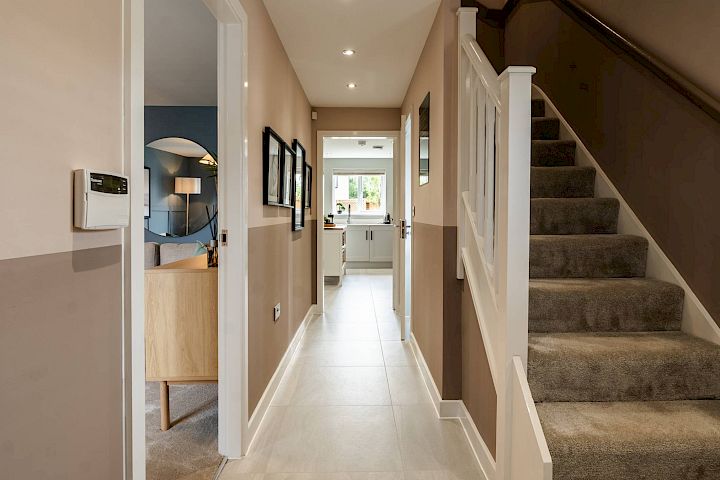
Do first-time buyers pay Stamp Duty?
Getting ready to buy your first home? You’ve probably heard plenty about saving for your deposit, estimating monthly mortgage payments and even a little rainy-day fund. But one cost that often sneaks up on first-time buyers is stamp duty.
In this guide, we’ll break down what it is, how it works, and what it means for first-time buyers, so you can budget smartly and avoid surprises.
What is Stamp Duty?
Stamp duty, officially called Stamp Duty Land Tax, is a property tax you might pay when buying a home. Think of it as an extra cost on top of your deposit, mortgage and moving expenses.
It’s a legal requirement, so even if it’s not the biggest cost you have when buying a home, it’s something you’ll need to plan for from the start.
Do first time buyers pay Stamp Duty?
For first-time buyers who buy a property worth up to £300,000, there is no stamp duty to pay. This is because of the first-time buyer stamp duty relief.
As of April 2025, if your home costs between £300,000 and £500,000, you pay 5% stamp duty on the portion above £300,000. However, if you purchase a property over £500,000, buyers will not qualify for the first-time buyer relief and the standard stamp duty rates will apply to the full price.
Who handles the Stamp Duty payment, and when is it due?
You don’t need to worry about sending the money to the HMRC yourself, your solicitor or conveyancer will sort everything for you. They will work out how much tax you need to pay and send the payment to HMRC on your behalf.
Stamp duty must be paid within 14 days of completing your purchase, and although your solicitor will aim to pay on time, it’s your responsibility to make sure that it has been paid.
What is Stamp Duty Land Tax used to fund?
The money you pay as part of Stamp Duty Land Tax goes to the government to fund public services like schools, hospitals, and local infrastructure.
Common mistakes first-time buyers make
Even with the first-time buyer stamp duty relief in place, it can be easy to make mistakes if you’re not aware of the rules. Here’s some of the things you should watch out for:
- Forgetting to budget for it. First-time buyer relief only covers up to £300,000. If your home is above that, you’ll need to pay stamp duty, so make sure it’s included in your budget.
- Not realising both buyers must qualify. If you’re buying with a partner, friend or family member, everyone must be a first-time buyer to get the relief. If one person has owned a home before, the full purchase is charged at the standard rate.
- Regional differences. Stamp duty only applies in England and Northern Ireland. Scotland and Wales have their own versions (Land and Buildings Transaction Tax in Scotland, Land Transaction Tax in Wales), with different rules and thresholds. So, make sure you check the guidance for where you’re buying.
- Missing the deadline. Stamp duty must be paid within 14 days of completing your purchase. Usually, your solicitor will handle this for you, but it’s still your responsibility to make sure it’s been done. Missing the deadline could mean a fine or interest charges.
If you’re a first-time buyer and you’re still wondering about deposits, mortgages or the other costs that come with buying your first home, you’re not alone.
Discover our range of helpful first-time buyer guides here.
Please note: Gleeson Homes is not regulated by the FCA and does not offer financial advice. We recommend you seek independent legal and financial advice.